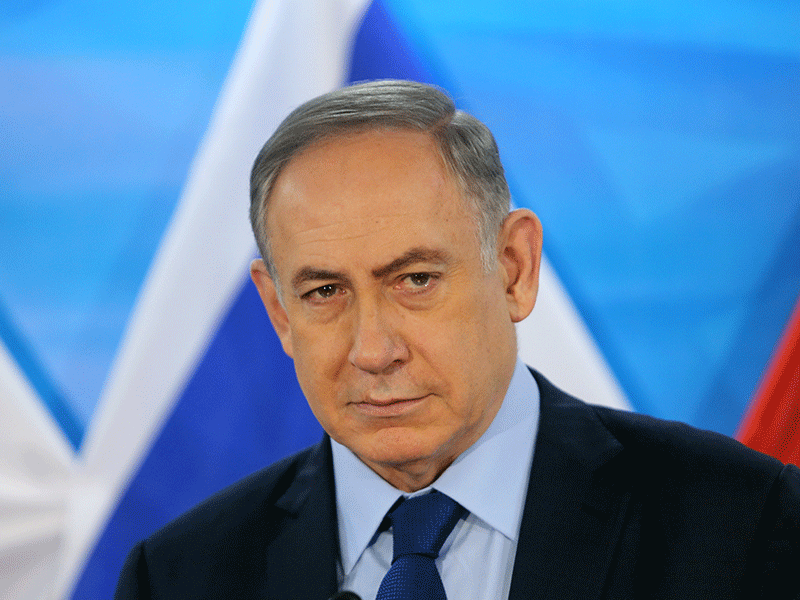Jewish groups in Canada are responding to the merger of two Israeli political parties, Otzma Yehudit (meaning Jewish Power) and Bayit Yehudi (Jewish Home), ahead of that country’s April 9 national election. The parties are running on the same list to better their chance of amassing the minimum 3.25 per cent of the total vote necessary to serve in the Knesset.
Otzma Yehudit is a far-right party based on the philosophies of Rabbi Meir Kahane, whose Kach party was banned from the Knesset for racism and promoting violence. Otzma Yehudit’s platform advocates for, among other things, pressuring Arab-Israelis to emigrate and annexing the West Bank.
Last week, almost 40 North American rabbis who identify with the religious Zionist movement signed a letter denouncing the merger. The letter called Otzma Yehudit a violent and racist party whose beliefs run counter to “the long-held principles of the religious Zionist movement,” and declared the rabbis’ dismay that Bayit Yehudi felt it appropriate to partner with Otzma Yehudit.
“Anyone who participates, directly or indirectly, in the inclusion of a group of people that worships power, is indifferent to violence, honours a murderer and is full of hate towards many Jews and non-Jews, bears responsibility for the hillul ha-Shem (desecration of God’s name),” reads the letter.
Rabbi Chaim Strauchler of Shaarei Shomayim Congregation in Toronto was one of the letter’s signatories. He felt it was important for the religious Zionist rabbis to speak out against the merger to make it clear it was not being done in their name and not in line with their vision of Zionism. Rabbi Strauchler said he recognizes the political reasoning behind the merger, but that the ethical price to be paid is too high.
“It comes at a great cost to Israel’s security and the sense that our security is not just a function of the strength of our army, but our security is also a function of the strength of our ideals and the message that we share among ourselves, and also the message that we project outwardly to the world as a whole,” he said.
“Israel survives by projecting a certain narrative, a certain story about what it means to be a Jew,” he added. “And it inspires Jews to act a certain way and it inspires the world to see Jews a certain way. And that, too, is essential to what Israel is and how Israel will continue to thrive and survive long into the future.”
READ: NETANYAHU BECOMES FIRST SITTING ISRAELI PRIME MINISTER TO FACE CRIMINAL CHARGES
Some Canadian Jewish organizations that have condemned the merger are JSpaceCanada and Canadian Friends of Peace Now (CFPN). JSpace took aim at Israeli Prime Minister Benjamin Netanyahu for helping broker the deal, calling Otzma Yehudit “an ultra-right-wing, racist party which embodies the most reprehensible elements of Israel’s political life.” The group went on to say, “We equally condemn Jewish Home, another political ally of the prime minister, for voting to bring these elements into its own ranks instead of rejecting them in disgust.”
CFPN, the sister organization of Israel’s Peace Now movement, said in its statement that it is non-partisan and usually would not speak out on partisan issues. “But when the prime minister of Israel implicitly endorses a worldview that has until now been beyond the pale in Israeli public life, we must speak out,” CFPN said.
“Attempting to bring Kahane’s disciples into government is a despicable, cynical move that undermines Israel’s democracy, strikes at its moral fibre and violates widely accepted Jewish values.”
The Centre for Israel and Jewish Affairs (CIJA) and the UJA Federation of Greater Toronto both declined to comment specifically on the merger. CIJA noted that it had consulted with Federation stakeholders across Canada who determined it would be inappropriate to comment on partisan political developments during an election campaign. “We express confidence in the Israeli people’s commitment to an open, inclusive democracy with equal rights for all its citizens,” said CIJA CEO Shimon Koffler Fogel.
The merger was also criticized south of the border, with the American Jewish Committee (AJC) and American Israel Public Affairs Committee (AIPAC), two U.S. political groups that usually do not comment on partisan matters, both denouncing the move.
